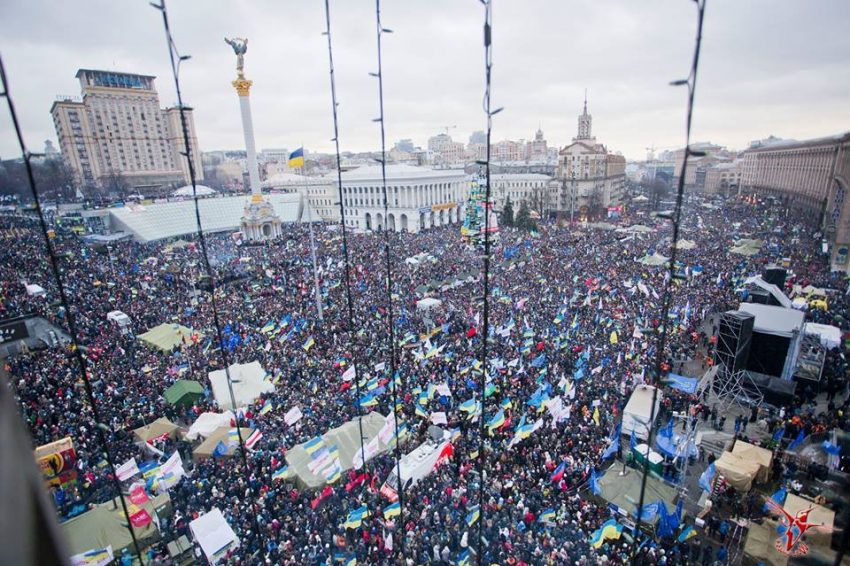Luc Brunet – 13 December 2013
A few weeks ago, demonstrations started in Ukraine to support the move for the country to enter into a trade agreement with the EU, and we see again trouble spreading in that country that indeed is very much at the turmoil area between zones of influence. The word Maidan itself illustrates that, as it means square or large place not only in Ukrainian, but also in Arabic, Farsi, Hindi, Turkish and many other oriental languages.
As always I wish to summarize a few ideas on the present situation, trying to avoid emotional arguments.
Unfortunately the situation again demonstrate the amateurism of western leaders, and in this case also of Ukrainian leaders. The recent support of western leaders to the Maidan movement are totally lacking basic diplomatic savvy. Several ministers or even the brilliant EU “foreign minister”, Catherine Ashton, visited Kiev, handling food to demonstrators. Let’s imagine the comments if Sergey Lavrov had visited New York to handle food to the Occupy Wall Street pickets, or if China announced tomorrow that they are ready to recognize and invest in the independent Republic of Cataluña and the Republic of Scotland in case the planned referendum next year receive a positive answer from the populations there!
But let’s be objective. What is the EU proposing to Ukraine and what can the country get out of it?
The EU is in a very weak position now, with parts of the region in bankrupt situation, while others like Germany or the UK are even thinking about leaving or dropping the Euro and a single currency. What can the EU objectively propose to Ukraine?
One option is a minimal trade agreement (what was proposed until now), with no real investment from the EU itself, but vague commitments that EU businesses shall start investing in Ukraine. This is indeed the Romanian or Bulgarian scenario, and even worst as no full membership shall be given before several years. This is an option where the low salaries and social costs shall be used by EU companies, mostly German companies, to delocalize some jobs from Eastern Europe to Ukraine, and the result shall be the same. More regulations, more costs to real local businesses, and this shall indeed damage the situation of a country that is mostly trading today with Russia and CIS countries (almost 40% of 2012 exports). Believing that Ukrainian products, in particular food and machinery equipment, shall be easily sold to EU is a dangerous illusion.
A second option is a faster integration, with even an early adoption of Euro for the Ukraine. This sounds crazy but nothing is impossible as finally all the move is motivated by a desire of expansion of the EU for political reasons, not at all economic reasons, and therefore desperate moves are not excluded. This option would be the end of Ukrainian economy and very rapid move towards a Greek situation of bankruptcy, but without the few years of heavy EU investment in infrastructures that Greece enjoyed in the beginning of the 2000’s.
On a pure economic viewpoint, Ukraine has a lot to lose in the EU partnership, not to talk about the internal political risk, with the western part of the country feeling very close to Poland and Eastern Europe, while the Eastern industrial part is Russian speaking and closer to Russia in mentalities. We should feel sorry for Ukraine and its people, as they are being manipulated today by on one side western leaders who are in search of a political win against Russia (and the BRICS in general) and Russia itself that considers the move as dangerous for Ukraine and Russia itself – be such danger real or not is in fact irrelevant now. In a way, the situation can be compared to Syria, where external powers intervene in the confrontation and make it a proxy fight, at the cost of the local populations that are put into a lose-lose situation.
Hopefully Ukraine shall not fall into the trap of an armed confrontation and a civil war, but the risk exists and nobody should ignore that, even Madam Ashton.
